Sri Lanka - A year for the ICRC to expand its response
… response capacities, first aid, and family links services. The ICRC delegation in Sri … Boosa Prison Complex in Galle. Through our Restoring Family Links (RFL) services, we …
… response capacities, first aid, and family links services. The ICRC delegation in Sri … Boosa Prison Complex in Galle. Through our Restoring Family Links (RFL) services, we …
… Cross Message is a simple form that allows family members to exchange family news in writing. The ICRC together with … improving water and sanitation systems; and Restoring contact between family members …
… are being made to restore contact between family members of Central Africans in the … that her daughter was on her way, went to the Restoring Family Links (RFL) office of the Cameroon Red Cross …
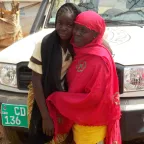
… Cross Messages (RCMs) were exchanged among family members separated by conflict, … the provision of technical training and loan. RESTORING FAMILY LINKS The ICRC has a global Family Network …
… gone missing, detained or separated from family members. In addition to the … and 2 polyclinics in Aleppo with generators. RESTORING CONTACT BETWEEN FAMILY MEMBERS • … detention and the re-establishment of family links between persons detained and their …
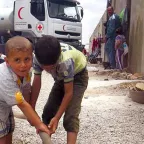
… separated by war, disaster or migration. The Family Links website is one of the tools that the Red … you looking for a family member? Visit our Restoring Family Links website. …
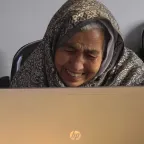
… how she first came in to contact with the Restoring Family Links service. Re-establishing contact with …
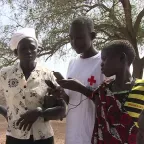
… migrants? Many are focusing on maintaining or restoring contact between family members, and on providing assistance. …
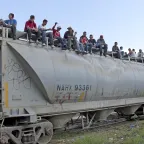
… who are not physically located on board Restoring Family Links Strategy for the Movement In November …
… 1998, 48,000 children were reunited with a family member in Rwanda. ICRC/T. Gassmann / … some of which, such as psychological care and restoring family links, are largely designed to meet their …
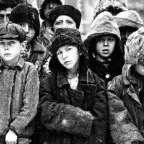
Try one of the following resources:
Created in 1863, the ICRC library, alongside the ICRC archives, provides an indispensable documentary reference on the organization itself and international humanitarian law.
International humanitarian law is based on a number of treaties, in particular the Geneva Conventions of 1949 and their Additional Protocols, and a series of other instruments.
Customary international humanitarian law consists of rules that come from "a general practice accepted as law" and that exist independent of treaty law.